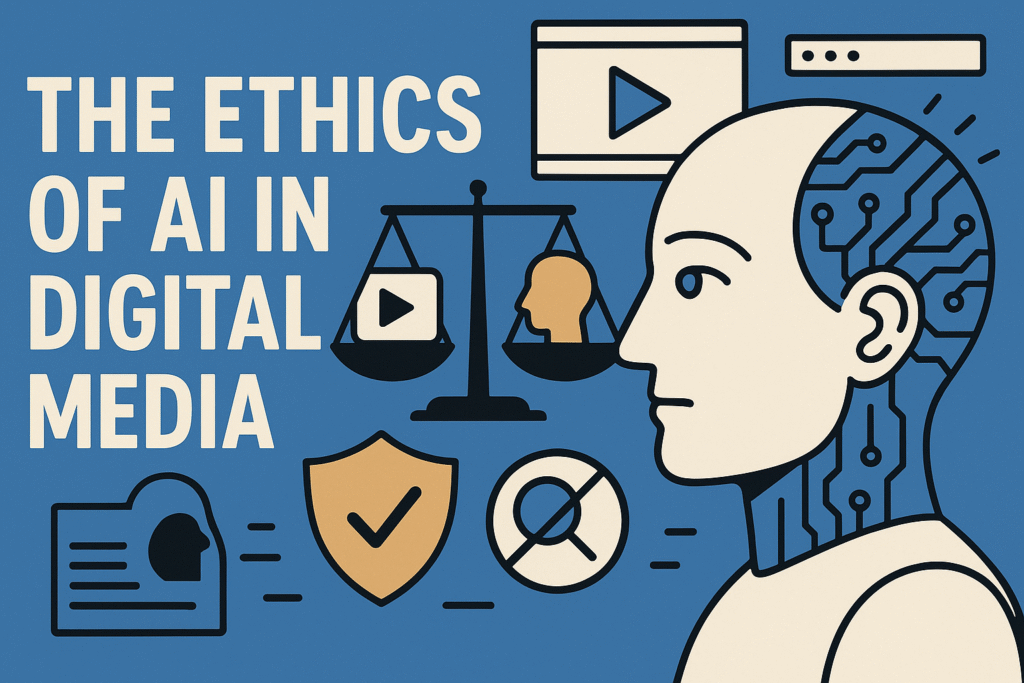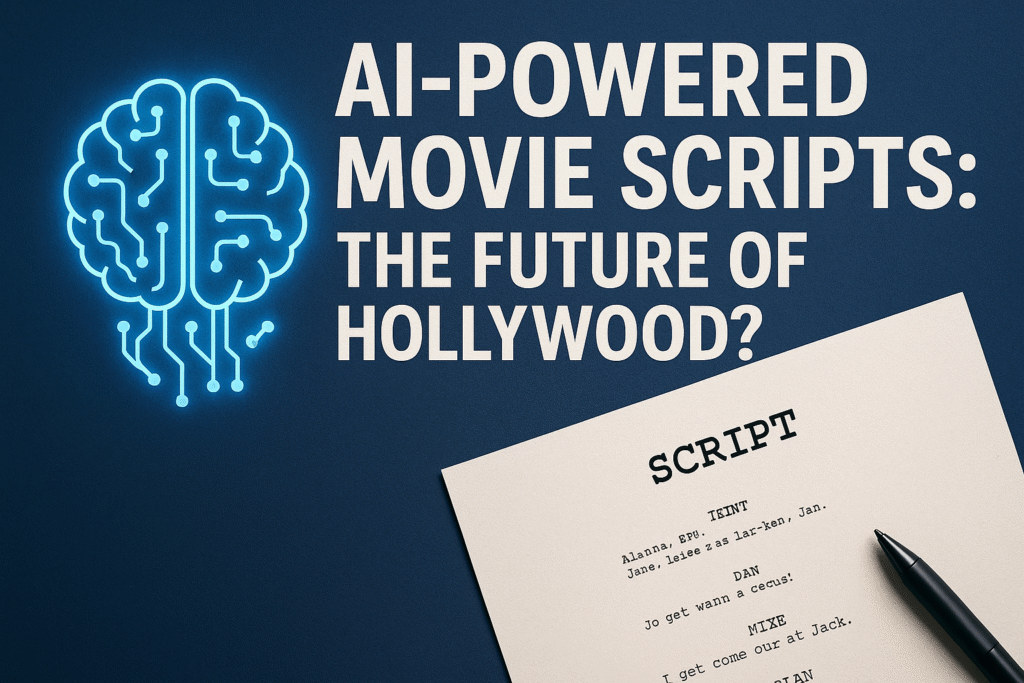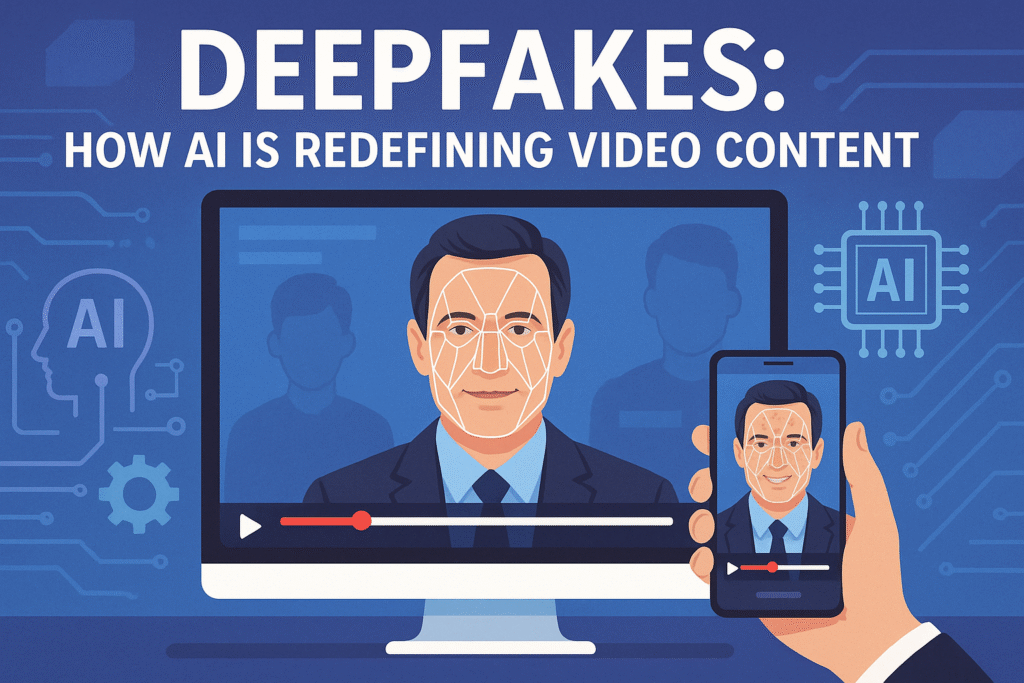🧠 The Ethics of AI in Digital Media: A New Era of Responsibility
In recent years, AI in digital media has made significant strides, transforming industries ranging from entertainment to marketing. AI tools are used to generate content, personalize recommendations, and even manipulate visual and audio elements in ways that were once impossible. But with this progress comes a new set of ethical concerns that need careful consideration.
At AiBlogQuest.com, we dive into the ethical implications of using AI in digital media, exploring the challenges it presents and how we can navigate them responsibly.
🧐 What Are the Ethical Concerns with AI in Digital Media?
The use of AI in digital media brings about several ethical challenges that require careful thought and action. Some of the most prominent concerns include:
1. Privacy Issues
With AI systems collecting and analyzing vast amounts of personal data, privacy concerns are top of mind. AI-driven platforms often track user behavior, preferences, and even emotions to tailor content. This can lead to a breach of privacy, especially if users are not aware of the extent to which their data is being collected and used.
2. Bias and Discrimination
AI algorithms are trained on historical data, which can introduce biases into the models. This is particularly problematic in digital media, where biased AI systems can perpetuate stereotypes or unfairly favor certain groups. For example, AI-powered recommendation engines may disproportionately promote content from specific demographics, leaving others underrepresented.
3. Content Manipulation and Deepfakes
Deepfakes and AI-generated content have raised concerns about the manipulation of reality. With AI’s ability to create hyper-realistic videos, images, and even voices, the potential for misinformation, fake news, and identity theft has increased. This technology can be used to spread harmful content or to deceive people into believing fabricated narratives.
4. Intellectual Property
As AI systems generate content, the question arises: Who owns the rights to AI-created works? This is a complex issue in digital media. If an AI generates a piece of music, art, or written content, should the AI be credited, or should the human creator who developed the AI system take ownership? The current legal framework doesn’t fully address these questions, and it’s an issue that needs resolution.
⚖️ The Need for Ethical Guidelines in AI Usage
Given these concerns, it’s clear that we need a set of ethical guidelines and regulations to govern the use of AI in digital media. Some potential solutions include:
1. Transparency and Disclosure
One way to ensure that AI is used ethically in digital media is by making its involvement transparent. Platforms should disclose when content has been generated or manipulated by AI, allowing users to make informed decisions about the content they consume.
2. Fairness and Inclusivity
To address biases in AI models, creators need to ensure that their algorithms are built with fairness and inclusivity in mind. This includes diverse data sets for training AI systems and regular audits to identify and correct biases in content recommendations and automated systems.
3. Regulation and Accountability
Governments and regulatory bodies will need to establish clear laws and regulations for AI usage in digital media. These regulations should address issues like privacy protection, intellectual property, and content authenticity. Additionally, creators should be held accountable for the ethical implications of the content they generate using AI tools.
🌐 The Future of AI in Digital Media
AI in digital media is still in its early stages, and the potential for both positive and negative impacts is immense. The technology is evolving rapidly, and with it, the ethical concerns surrounding its use will also continue to grow. It’s up to creators, developers, and regulators to work together to ensure that AI is used responsibly, with respect for privacy, fairness, and truth.
As we move forward, it will be essential to maintain a balance between innovation and ethics, allowing AI to enhance the digital media landscape without compromising fundamental rights and values.
🔗 Useful Links
🌐 Resources
-
AI Ethics: A Guide to Responsible AI Development – AI Now Institute
-
The Ethics of Artificial Intelligence – MIT Technology Review
❓ FAQ – The Ethics of AI in Digital Media
Q1: What are the main ethical concerns with AI in digital media?
The main concerns include privacy issues, bias in AI algorithms, content manipulation (such as deepfakes), and questions around intellectual property and ownership of AI-generated content.
Q2: How can AI be used responsibly in digital media?
AI can be used responsibly by ensuring transparency in content generation, eliminating biases in AI systems, adhering to ethical guidelines, and protecting user privacy.
Q3: Are there regulations in place for AI in digital media?
Currently, there are limited regulations governing AI in digital media. However, discussions around creating laws and regulations to address issues like privacy, ownership, and fairness are ongoing.
🎞️ Final Thoughts
The ethics of AI in digital media is a critical issue that will shape the future of the industry. As AI tools become more powerful and widespread, it’s important to approach their use with caution and responsibility. By prioritizing ethical practices, we can ensure that AI enhances creativity and innovation without compromising our values and rights.
For more insights on AI and its impact on digital media, visit AiBlogQuest.com, where technology meets responsibility.
🏷️ Tags:
AI in Digital Media, Ethics of AI, AI Privacy Concerns, AI Bias, AI Content Creation, Digital Media Ethics, AI Tools, AI and Misinformation, AI in Entertainment, AiBlogQuest



